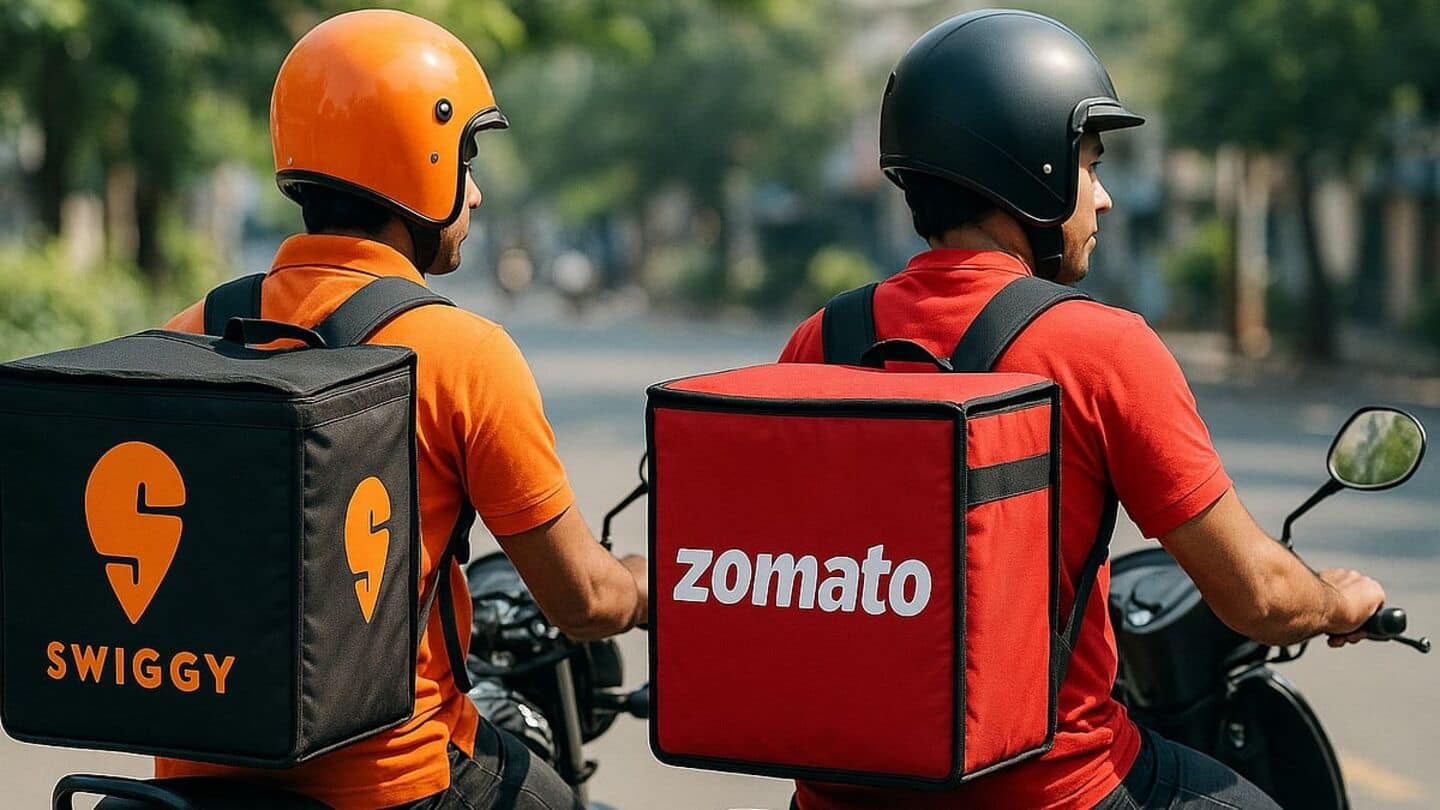
Will Zomato, Swiggy raise delivery charges post new labor codes?
What's the story
Swiggy and Eternal (formerly Zomato) have assured stock exchanges that India's new labor codes, which came into effect on Friday, will not have any "material impact" on their businesses. The companies made the statement in response to the Code on Social Security 2020 (CoSS), which mandates contributions from platforms like theirs. However, analysts predict that these contributions could increase operating costs for food delivery and quick commerce sectors.
Contribution details
CoSS mandates contributions to welfare fund
The CoSS mandates platforms to contribute 1-2% of their annual turnover, up to a maximum of 5% of payouts to gig workers, toward a dedicated welfare fund. Analysts have estimated that this levy could increase per-order costs by ₹2-3 and add billions to annual expenses for both Swiggy and Eternal. Given their current profitability status, the burden is likely to be passed on directly to customers.
Cost impact
Analysts predict significant cost increase
Brokerages have already started factoring in the impact of CoSS. JM Financial estimates that the levy would add ₹2.1-2.5 per order for both food delivery and quick commerce. When applied across FY26 volumes, this could mean an additional ₹4.3 billion for Eternal and ₹2.6 billion for Swiggy at the consolidated level. The firms are likely to pass on these costs to consumers, given their sustainable profitability guidance is still far off.
Demand impact
New charges could impact demand
The new CoSS contribution will be another price hike lever in 18 months. This comes on top of existing charges such as platform or handling fees of ₹13-15, small-order charges, peak-hour and surge fees, and GST tweaks for hyperlocal delivery. Even though these changes have been gradually accepted by customer, especially those making lower-value orders, analysts warn that the latest levy could still hurt demand in the short term.
Implementation challenges
Implementation of new code could be challenging
The implementation of the new CoSS could be complicated as riders often switch between apps, making contribution tracking difficult. The multi-business models also blur the link between turnover and gig-worker payouts. Plus, food delivery and quick commerce operate on different economics, which makes a uniform framework hard to apply.
Social security
New code brings gig workers under social-security net
The new CoSS framework brings gig and platform workers under a formal social-security net for the first time. It provides accident cover, life insurance, disability benefits, maternity support, health schemes and old-age protection. The government has said that delivery of benefits may be routed through existing mechanisms such as AB-PMJAY (Ayushman Bharat - Pradhan Mantri Jan Arogya Yojana) and state welfare boards.